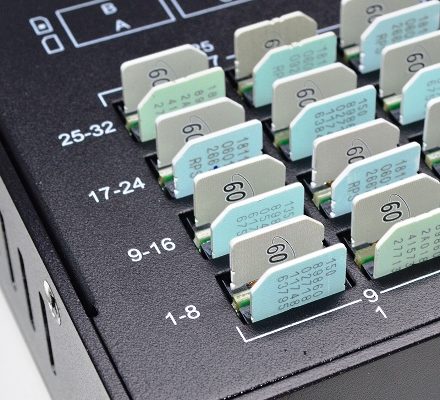There is growing frustration among the public about how kidnappers and bandits in Nigeria continue to operate freely, even after being captured on video, recorded on other devices, or making direct contact with their victims’ families. Media reports have questioned why these criminals remain untraceable despite the presence of communication satellites like NIGCOMSAT and mandatory National Identification Number (NIN) and Subscriber Identity Module (SIM) linkage requirements.
RELATED: Nigerian authorities pursue notorious bandit hosting live ransom displays on TikTok
In one report by the Saturday Vanguard, Henry Okunomo, Senate President of the Nigerian Association of Nigerian Students (NANS), voiced his deep concern over this issue. Speaking at a recent television interview about his abducted colleagues, Okunomo expressed his frustration with the security agencies’ handling of the situation. He stated, “I am not satisfied with the way security agencies are going about the matter. The government cannot tell me there is no other way this kidnapping thing can be nipped in the bud. After all, there are several measures already in place, why are they not working?”
NIM-SIM Linkage aimed at enhancing national security
The measures Okunomo referred to include the SIM card registration initiated by the Nigerian Communications Commission (NCC) in 2011, the NIN enrollment launched by the National Identity Management Commission (NIMC) in 2015, the NIN-SIM registration exercise conducted by the Federal Government in 2020, and the deployment of the NigComSat-1R communications satellite in 2012. These initiatives were primarily aimed at enhancing national security by enabling law enforcement agencies to monitor and intercept criminal communications, facilitating more secure digital transactions, and improving governance through accurate data for policymaking.
Despite these measures, kidnappers and bandits continue to act with impunity. Many victims report that either the measures are ineffective or that there is some level of complicity among those responsible for taking action. For instance, in Zamfara State, Mallam Yushau Jangeme, a kidnap victim, recounted that local security agents did nothing to trace the phone calls made by his abductors, despite having their contact numbers.
The NCC has maintained a strict stance on the NIN-SIM linkage deadline to cleanse the SIM ownership database and prevent criminals from exploiting unlinked SIM cards for illicit activities. A senior official from the NCC, speaking anonymously, highlighted the discovery of several dangerous security trends that prompted the rigorous enforcement of the NIN-SIM linkage. “We have seen instances where individuals possess thousands of SIM cards linked to a single NIN, which clearly were not intended for legitimate purposes,” the official noted.
Addressing the issue of kidnappers making untraceable calls, the NCC official explained that their role is to provide support to security agencies and not directly track or apprehend individuals making these calls. A satellite engineer from NIGCOMSAT also clarified misconceptions about the capabilities of the NigComSat-1R satellite, stating that it is a communications satellite designed to gather data and digital footprints, not to capture images or videos of crime scenes.
The engineer emphasized that the responsibility for acting on the information provided by the satellite rests with the security agencies. “People should not think that because crimes are happening unabated, the satellite is not working or performing its duties,” he added.
The ongoing situation highlights a critical gap in the implementation and effectiveness of technological and regulatory measures meant to combat criminal activities in Nigeria. The public and stakeholders continue to call for greater accountability and improved collaboration among all parties involved to ensure these measures fulfill their intended purpose of enhancing national security and public safety.






























